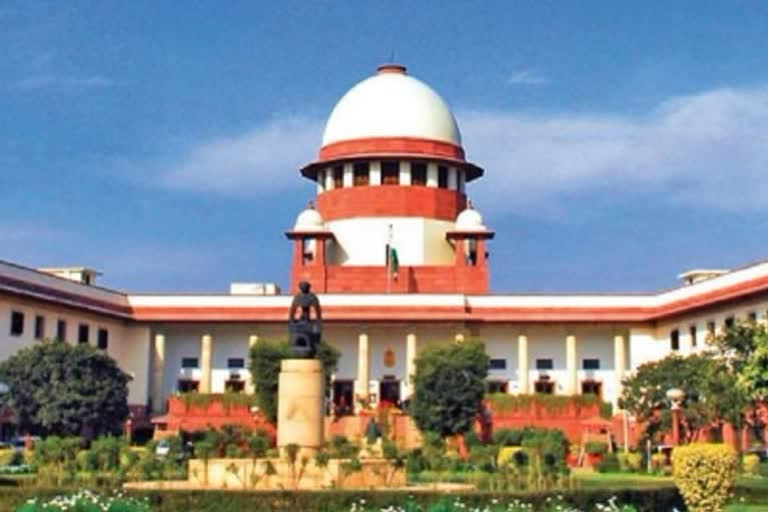New Delhi: The Supreme Court on Tuesday slammed the centre for changing its stand in the matter relating to granting Hindus minority status in states where they are a minority. The top court said that the identification of minorities, including Hindus, at the state level needs a resolution and observed that taking different stands doesn't help.
The centre had earlier said that the power to notify minorities lies with the states. However, in the fresh affidavit filed on Monday, it said that the power lies with itself but it would need to consult all the states and stakeholders before doing so. A bench comprising SK Kaul and MM Sundresh on Tuesday said, "What we are unable to understand is Union of India is not able to decide what to do. All this thought should have been given before. This creates uncertainty and all this comes into the public domain before we put our eyes on it. This creates another problem," the bench said. The bench further said that there are matters which require resolution and everything cannot be adjudicated.
The apex court had earlier granted four weeks to the Centre to respond to a plea, which has sought directions for framing of guidelines for the identification of minorities at the state level, contending that Hindus are a minority in 10 states. In an affidavit filed in response to a plea filed by advocate Ashwini Kumar Upadhyay, the Ministry of Minority Affairs said the central government has notified six communities as minorities under section 2C of the National Commission for Minorities Act, 1992.
Upadhyay had challenged the validity of section 2(f) of the National Commission for Minority Education Institution Act, 2004, alleging that it gives unbridled power to the Centre and termed it "manifestly arbitrary, irrational, and offending". Section 2(f) of the Act empowers the Centre to identify and notify minority communities in India.
The plea, filed through advocate Ashwani Kumar Dubey, said denial of benefits to "real" minorities and "arbitrary and unreasonable" disbursements under schemes meant for them to the absolute majority infringe upon their fundamental right. "In the alternative, direct and declare that followers of Judaism, Bahaism, and Hinduism, who are minorities in Ladakh, Mizoram, Lakshadweep, Kashmir, Nagaland, Meghalaya, Arunachal Pradesh, Punjab, and Manipur, can establish and administer educational institutions of their choice in the spirit of the TMA Pai Ruling," the plea said.
The apex court in the TMA Pai Foundation case had held that the state is well within its rights to introduce a regulatory regime in the national interest to provide minority educational institutions with well-qualified teachers for them to achieve excellence in education. Quoting Article 30 of the Constitution, the plea said that minorities, whether based on religion or language, shall have the right to establish or administer educational institutions of their choice.
The petition said that denial of minority rights to actual religious and linguistic minorities is a violation of the rights of minorities enshrined under Articles 14 and 21 (no person shall be deprived of his life or personal liberty except according to procedure established by law) of the Constitution. The apex court had earlier allowed a plea seeking transfer of cases from several high courts to it against the Centre's notification to declare five communities - Muslims, Christians, Sikhs, Buddhists, and Parsis - as minorities and tagged the matter with the main petition.
Also read: Why can't states be asked to not register sedition cases till law is reconsidered? SC asks Centre



